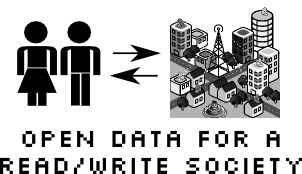Our Statement on Public Access to Federally-Supported Research Data
Open Access to research publications often takes the limelight in national debates about access to research – but at the Open Knowledge Foundation we know there are also other pressing issues; like the need for Open Data. So we submitted a short written statement to the ongoing US Public Comment Meeting concerning Public Access to Federally Supported R&D Data. Our statement is below:

Each year, the Federal Government spends over $100 billion on research. This investment, in part is used to gather new data. But all too often the new data gathered isn’t made publicly available and thus can’t generate maximum return on investment through later re-use by other researchers, policy-makers, clinicians and everyday taxpaying citizens.
A shining example of the value and legacy of research data is the Human Genome Project.
This project and its associated public research data are estimated to have generated $796 billion in economic impact, created 310,000 jobs, and launched a scientific revolution. All from an investment of just $3.8 billion.
With the budget sequestration of 2013 and onwards it’s vitally important to get maximum value for money on research spending. By ensuring public access to most Federally funded research data it’ll help researchers do more with less. If researchers have greater access to data that’s already been gathered they can focus more acutely on accumulating just the new data they need, and nothing more. It’s not uncommon for Federally funded researchers to perform duplicate research and gather duplicate data. The competitive and often secretive nature of research means that duplicative research and data hoarding are probably rife, but hard to evidence. Enforcing a public data policy on researchers would thus help them to make the overall system more efficient. This tallies with the conclusions of the JISC report (2011) on data centres:
“The most widely-agreed benefit of data centres is research efficiency. Data centres make research quicker, easier and cheaper, and ensure that work is not repeated unnecessarily.”
Another more subtle benefit of making Federal-funded data more public is that it would increase the overall importance and profile of US research in the world. Recent research by Piwowar & Vision (2013) robustly demonstrates that research that releases public data gets cited more than research that does not publicly release its underlying data.
The as yet untapped value of research data:
I believe most research data has immense untapped re-use value. We’re only just beginning to realise the value of data mining techniques on ‘Big Data’ and small data alike. In the 21st century, now more than ever, we have immensely powerful tools and techniques to make sense of the data deluge. The potential scientific and economic benefits of such text and data mining analyses are consistently rated very highly. The McKinsey Global Institute report on ‘Big Data’ (2011) estimated a $300 billion value on data mining US health care data alone.
I would finish by imploring you to read and implement the recommendations of the ‘Science as an Open Enterprise’ report from the Royal Society (2012):
* Scientists need to be more open among themselves and with the public and media
* Greater recognition needs to be given to the value of data gathering, analysis and communication
* Common standards for sharing information are required to make it widely usable
* Publishing data in a reusable form to support findings must be mandatory
* More experts in managing and supporting the use of digital data are required
* New software tools need to be developed to analyse the growing amount of data being gathered
Ross Mounce, Community Coordinator for Open Science, Open Knowledge Foundation
30 other written statements were also contributed to this session, including one from Creative Commons, and one from Victoria Stodden. These can all be found in the official 64 page PDF here
Further Reading:
Report: Science as an open enterprise (2012) http://royalsociety.org/policy/projects/science-public-enterprise/report/
Tripp, S & Grueber, M (2011) Economic Impact of the Human Genome Project. Battelle Memorial Institute, Technology. Partnership Practice www.labresultsforlife.org/news/Battelle_Impact_Report.pdf
Piwowar, H & Vision T J (2013) Data reuse and the open data citation advantage. PeerJ PrePrint https://peerj.com/preprints/1/
JISC (2011) Data centres: their use, value and impact http://www.jisc.ac.uk/publications/generalpublications/2011/09/datacentres.aspx
Manyika et al (2011) Big data: The next frontier for innovation, competition, and productivity http://www.mckinsey.com/insights/business_technology/big_data_the_next_frontier_for_innovation
Leave a Reply